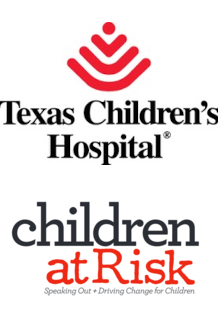Abstract
This special issue is dedicated to issues related to the intersection of immigration, associated risks, and family strengths. Although documentation of experiences of immigrants with justice and child welfare systems has increased over the last five years[1], there remains much to be documented to facilitate an understanding of the challenges that immigrant families face and their strengths in overcoming risks. For example, the need for placement and care for unaccompanied, refugee, and immigrant children has grown exponentially and placed a strain on the already under-resourced child placing and foster care systems.[2] These youth are often less considered for adoption or are viewed as being at high risk of delinquency[3].
This special issue will provide a space for academic scholars, practitioners, professionals and system impacted individuals to discuss and explore the attributes of immigrant families that contribute to placing children at risk (e.g., immigration status, country of origin), correlation to negative life events (e.g. human trafficking) impact of system involvement (e.g., child welfare or justice) on immigrant families and their children and identify policy or program recommendations to address the unique issues related to immigration and families (e.g., settlement communities, etc.).
[1] Bejarano C. (2015). Fear, vulnerability and death for children and youth at the US-Mexico border. In: C. Harker, K. Hörschelmann, T. Skelton (Eds.), Conflict, violence and peace (GCYP, vol11). Singapore Springer. Retrieved from https://link.springer.com/referenceworkentry/10.1007%2F978-981-4585-98-9_10-1
Migration Policy Institute. (n.d.). Children in U.S. immigrant families. Retrieved from https://www.migrationpolicy.org/programs/data-hub/charts/children-immigrant-families
Radford, J. (2019). Key findings about U.S. immigrants. Retrieved from https://www.pewresearch.org/fact-tank/2019/06/17/key-findings-about-u-s-immigrants
Rodriguez, D. X., Rodriguez, S. C., & Zehyoue, B. C. V. (2019). A content analysis of the contributions in the narratives of DACA youth. Journal of Youth Development, 14(2), 64-78. doi:10.5195/jyd.2019.682
Wu, Y-J., Outley, C., & Matarrita-Cascante, D. (2019). Cultural immersion camps and development of ethnic identity in Asian American youth. Journal of Youth Development, 14(2), 166-181. doi:10.5195/jyd.2019.708
[2] https://time.com/5950832/unaccompanied-minors-border
[3] Rodriguez, F., & Dawkins, M. (2016). Undocumented Latino Youth: Migration Experiences and the Challenges of Integrating into American Society. Journal of International Migration and Integration, 18, 419-438.
Wolff KT, Intravia J, Baglivio MT, Piquero AR. The Protective Impact of Immigrant Concentration on Juvenile Recidivism: A Multilevel Examination of Potential Mechanisms. Crime & Delinquency. 2018;64(10):1271-1305. doi:10.1177/0011128717739608
Author Biography
Erin M. Espinosa, PhD. Director of Research, Evident Change & John J. Rodriguez, Associate Professor, Department of Criminology & Criminal Justice, University of Texas at Arlington
Recommended Citation
(2022)
"Family Strengths and Immigration,"
Journal of Family Strengths: Vol. 22:
Iss.
1, Article 1.
DOI: https://doi.org/10.58464/2168-670X.1470
Available at:
https://digitalcommons.library.tmc.edu/jfs/vol22/iss1/1


